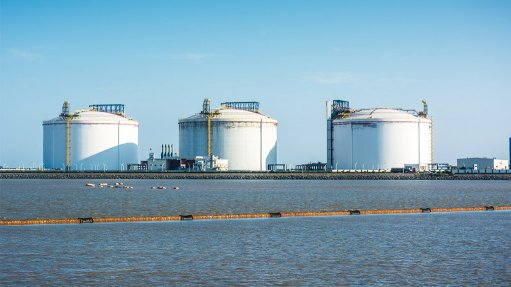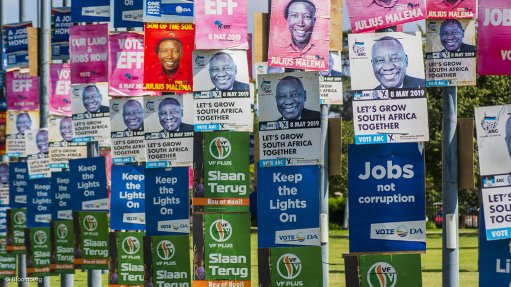A story of an African farm
The title of this column should not be confused with Olive Schreiner’s first double-volume novel, The Story of an African Farm, published 1883 under the pseudonym Ralph Iron. This is A Story of an African Farm.
Irrespective of their differences, South Africans share an undying love for their land. Yes, they are passionate about their country, some to a fault, but it is the love for their land – the earth – which is undisputed. For me, there is no smell quite like the Highveld after its first rains. If anyone could ever find the means to bottle that smell, well, they will have one very loyal customer.
When trying to find the definition of ‘land’, I could only find the crude definition that it is that part of the earth’s surface that is not covered by water. I would argue that ‘water’ should be ‘seawater’, as water is known to also flow over land.
While I am cognisant of the fact that, this being the first column for the year, some readers would have expected this column to be about New Year’s resolutions, I decided to focus on what South Africa can be, rather than what we wish, and dream, it to be. This is a column about doing and not talking. If anything, present-day South Africa’s competitive advantage lies in talking, planning and talking about planning, not in deciding or implementing.
Lately, I have often found myself hankering back to my grandfather’s African farm, which is now in the hands of the families that worked beside him, as it should be. If anything united them, it was the love for the land on that African farm. A traditional African farm, it is anything but. This African farm was rendered ‘unfarm- able’ by many administrations past; in the 1930s, in their wisdom, they decided to divide it into five pieces, through the splitting of national roads, making it a crossroads, if you will. As if their division was not detrimental enough to farming, this African farm is adorned by all types, grades, grains and colours of slate. (It reminds me of a dialogue in Butch Cassidy and the Sundance Kid – “I’m not crazy; I’m just colourful.”) Well, the nature and extent of the slate on the African farm would make anyone crazy, but, for its slate, it was blessed with not only an abundance of water, but also hot water springs. As a consequence, it was settled by many nomadic cultures, as is evidenced by the relics that the land revealed on regular occasion.
But it is not the African farm that is important, but what occurred on the farm. My grandmother seized the opportunity that the invasive roads delivered to trade with motorists who crossed the farm from virtually every conceivable wind direction.
It was not an animal farm, but a farm with ‘unfarmable’ land that simply had to provide for its inhabitants – all of its inhabitants. If there was one thing that was in short supply on the African farm, it was talk. You know why talk is cheap? The economic reason, that is? Because supply exceeds demand. Oversupply implies a low price for the commodity. On the African farm, talking and inaction did not place food on the table; sweat and toil did. This was not a commercial African farm; so, what came from the land was consumed on the land. Add to this the fact that the land required extensive cultivation, as the slate was not about to simply relinquish its hold on land without a fight, and a fight – a constant struggle – it was. The slate had to be removed and the land had to be supplemented with soil obtained from adjoining farms and manure from the few animals and birds (chickens) on the farm and from elsewhere.
Things were simple on the African farm, unlike the complication of the present-day ‘developed’ – one cannot say ‘growing’ – South African economy.
So, why cannot the practices successful on this African farm be duplicated in present-day South Africa? Is the culture of working and the resolve to succeed not the prided heritage of many a South African culture? Let us compare the African farm with the South African economy.
There was simply no luxury to overthink things – things were what they were. There was no indulgence in the formulation of excessive plans and then embarking on a consultative process to appease all stake- holders, possibly followed by the establishment of a commission, the appointment of a chairperson, the drawing up of a mandate and the terms of reference. This process culminates in the formulation of a plan, which is often littered with buzzwords, catch phrases and excessive reference to the present challenge being the result of past inequalities. After all this, there is need to agree on a champion to take responsibility for the implementation of the plan. Should the plan fail, the responsibility or blame for this failure is easily ‘outsourced’ to an external factor – and there are plenty to choose from.
If this was to occur on the African farm . . . well, you know the result. So, if this process was ‘unemployable’ on a primitive – subsistence – African farm, why would anyone believe that it should be applied at national level?
On the African farm, everyone had to contend with the same challenges and had the same goal and desire – to extract the best possible crop from the land. In achieving this, everyone had their own assigned task; some were even assigned multiple tasks. Everyone understood their task, role and responsibility, and was able to perform these. Everyone was qualified to perform not only their own tasks, but also those of others should they need to step in at any stage. Everyone knew what was expected of them and understood the interdependence of the respective tasks. There was no need to motivate anyone, as everyone acted for the collective good. If there was any competition, it was constructive, not destructive, as the latter would have impeded and negatively affected them all. If something unforeseen happened and a decision had to be taken, then it was taken. By not taking a decision, one is taking a decision. Do you still recall the words in old English: “I decided to not to do anything”? The emphasis is on ‘decided’. It goes without saying that all African farm residents were able to live off the land.
Why is it that what happened on the African farm is seemingly impossible to replicate in present-day South Africa? I listen to and read new plans and measure them against the principles employed on the African farm. If things were done otherwise, well, the African farm would have been deserted. The land would not have provided for its inhabitants and it would not have been possible to sustain them. South Africa simply does not have the luxury of continuing on its present path.
My New Year’s wish for South Africa is that it returns to the basics and finds a South African solution to its multiple challenges. It needs to start doing things differently – for one, stop talking and start doing. But, for this to happen, you require leadership and commitment, both of which have much in common with the recent performance of the rand – testing, breaching and recording new lows.
Comments
Press Office
Announcements
What's On
Subscribe to improve your user experience...
Option 1 (equivalent of R125 a month):
Receive a weekly copy of Creamer Media's Engineering News & Mining Weekly magazine
(print copy for those in South Africa and e-magazine for those outside of South Africa)
Receive daily email newsletters
Access to full search results
Access archive of magazine back copies
Access to Projects in Progress
Access to ONE Research Report of your choice in PDF format
Option 2 (equivalent of R375 a month):
All benefits from Option 1
PLUS
Access to Creamer Media's Research Channel Africa for ALL Research Reports, in PDF format, on various industrial and mining sectors
including Electricity; Water; Energy Transition; Hydrogen; Roads, Rail and Ports; Coal; Gold; Platinum; Battery Metals; etc.
Already a subscriber?
Forgotten your password?
Receive weekly copy of Creamer Media's Engineering News & Mining Weekly magazine (print copy for those in South Africa and e-magazine for those outside of South Africa)
➕
Recieve daily email newsletters
➕
Access to full search results
➕
Access archive of magazine back copies
➕
Access to Projects in Progress
➕
Access to ONE Research Report of your choice in PDF format
RESEARCH CHANNEL AFRICA
R4500 (equivalent of R375 a month)
SUBSCRIBEAll benefits from Option 1
➕
Access to Creamer Media's Research Channel Africa for ALL Research Reports on various industrial and mining sectors, in PDF format, including on:
Electricity
➕
Water
➕
Energy Transition
➕
Hydrogen
➕
Roads, Rail and Ports
➕
Coal
➕
Gold
➕
Platinum
➕
Battery Metals
➕
etc.
Receive all benefits from Option 1 or Option 2 delivered to numerous people at your company
➕
Multiple User names and Passwords for simultaneous log-ins
➕
Intranet integration access to all in your organisation


















